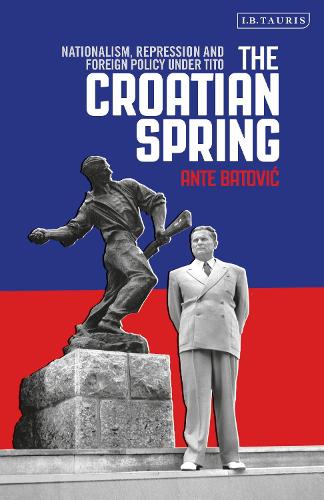
The Croatian Spring: Nationalism, Repression and Foreign Policy Under Tito
(Paperback)
Available Formats
Publishing Details
The Croatian Spring: Nationalism, Repression and Foreign Policy Under Tito
By (Author) Ante Batovic
Bloomsbury Publishing PLC
I.B. Tauris
26th December 2019
United Kingdom
Classifications
Tertiary Education
Non Fiction
Nationalism and nationalist ideologies and movements
Revolutions, uprisings, rebellions
European history
Political leaders and leadership
Physical Properties
Paperback
368
Width 138mm, Height 216mm
426g
Description
Nationalism is a key topic within Balkan Studies, and one of the driving forces behind the bloody and difficult history of the region. Using primary sources not previously utilized by western scholars, this book documents the 'Croatian Spring' - a national and liberal movement that began in the mid-sixties after the fall of the vice president and head of the Yugoslav secret police Aleksandar Rankovic. The author chronicles these developments of democratisation and de-centralisation of communist Yugoslavia, placing them in the wider context of the Cold War and Yugoslav relations with the Soviet Union and the UnitedStates. Tito managed to balance national stability and his relations with East and West, until he felt that the national-liberal movements challenged his authority, and thus threaten the very foundations of the Yugoslav state. From late 1971 onwards, the liberal political and cultural classes of Croatia and other republics were abruptly purged, impoverishing Yugoslav leadership for subsequent decades.Batovic also considers the role of the West, who felt a centralised and stable Yugoslavia was in their interests and quickly accommodated themselves to the repression of the reformist movement.
Author Bio
Ante Batovic is a Cold War historian, with keen interest in Eastern Europe and the Balkans. He published extensively on the Croatian post-war history, Yugoslav foreign policy in the Cold War and its role in the Non-Aligned Movement. He holds a Master's degree in Global Politics from London School of Economics and PhD in History from University of Zadar.
